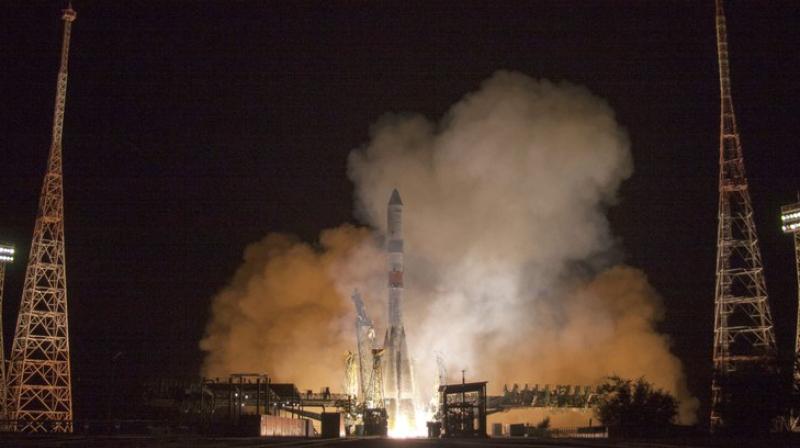Russian cargo ship makes fastest-ever trip to space station
The unmanned spacecraft loaded with nearly three tons of supplies docked at the station in the automatic mode less than four hours.

A Russian cargo ship delivered a fresh load of fuel, food, and other supplies for the International Space Station on Tuesday, making it in record time.
The Progress MS-09 lifted off as scheduled at 3:51 a.m. (2151 GMT; 5:51 p.m. EDT Monday) from the Russia-leased Baikonur Cosmodrome in Kazakhstan. The unmanned spacecraft loaded with nearly three tons of supplies docked at the station in the automatic mode less than four hours after the launch.
It marked the first time such a fast-track approach was used. In the past, it took the Progress ships up to two days to reach the space outpost.
Russia’s space agency Roscosmos said the faster manoeuvre became possible thanks to a new version of the Soyuz booster rocket, noting that it puts the ship into orbit with higher precision.
NASA said that the fast trip to the station was intended to test an expedited capability that could be used on future Russian cargo and crew launch missions.
“It’s a new achievement by our engineers,” Russian cosmonaut Fyodor Yurchikhin said on state television. He added that after being tested on unmanned Progress vehicles the new fast approach will also be used by manned Soyus spacecraft that deliver crews to the station.
Roscosmos first tried to use the new manoeuvre last year, but it was aborted for technical reasons.
Roscosmos director Dmitry Rogozin hailed the faster rendezvous as a “big step forward” in a call with a Russian crew on board the station after the docking.
Rogozin tweeted that the fast-track approach will be used in the future for assembling spacecraft in orbit for missions into deep space.
The station’s current crew includes NASA astronauts Drew Feustel, Ricky Arnold and Serena Aunon-Chancellor, a European Space Agency astronaut from Germany, Alexander Gerst, and Russians Oleg Artemyev and Sergey Prokopyev.
Click on Deccan Chronicle Technology and Science for the latest news and reviews. Follow us on Facebook, Twitter.
